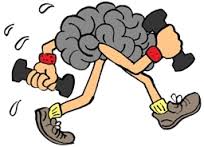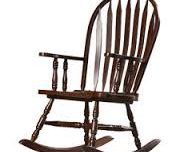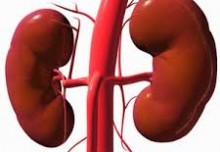 Physical exercise, mental gymnastics or medication: which one has the most beneficial impact on improving or delaying the onset of what medical professionals call “mild cognitive impairment?” First, to clarify, mild cognitive impairment (MCI) is a middle ground between the normal decline of our brain function and the dementias that I have talked about in previous posts. You might even refer to it as “pre-dementia,” except that MCI does not always or inevitably lead to dementia.
Physical exercise, mental gymnastics or medication: which one has the most beneficial impact on improving or delaying the onset of what medical professionals call “mild cognitive impairment?” First, to clarify, mild cognitive impairment (MCI) is a middle ground between the normal decline of our brain function and the dementias that I have talked about in previous posts. You might even refer to it as “pre-dementia,” except that MCI does not always or inevitably lead to dementia.
The rate of cognitive decline increases with age with just fewer than seven percent of adults age 60 to 64 showing signs of mild cognitive impairment. By age 80 – 84 the rate of MCI exceeds 25%. And MCI progresses to dementia in about 15% of patients 65 or older.
It is true that the FDA has approved a few medications for their ability to slow the progression of cognitive decline, and you have seen some of them advertised on television. And there are “brain games” available for people who want to keep their faculties sharp…even doing crossword puzzles or just reading have been shown to be of some help in slowing the inevitable mental decline associated with birthdays. Yet, neither of these can measurably improve cognitive function.
The American Academy of Neurology has released new guidelines that encourage regular, physical exercise as a way to not just improve overall health, but to also improve memory and slow decline of cognitive processing. They see little value in pharmacologic treatments, and they admit that cognitive training can improve a patient’s score on cognitive measures. Engaging in physical exercise like walking or biking or swimming as little as twice a week actually can improve cognitive function. The new guidelines, as endorsed by the Alzheimer’s Association, are based on research over a six month period that demonstrated that physical exercise just twice a week can significantly improve memory.
There are no long term studies yet, but researchers are extending their work, to date, to see if they can actually hold on to that improvement longer. It looks as if we can add one more condition to the list of ailments that can be reversed by diet or exercise. (Do a search in the toolbar for “exercise” and see all the good that can come from working up a little sweat.)
Charlotte Bishop is an Aging Life Care Advisor, Geriatric Care Manager and founder of Creative Care Management, certified professionals who are geriatric advocates, resources, counselors and friends to older adults and their families in metropolitan Chicago. She also is the co-author of How Do I Know You? A Caregiver’s Lifesaver for Dealing with Dementia.






